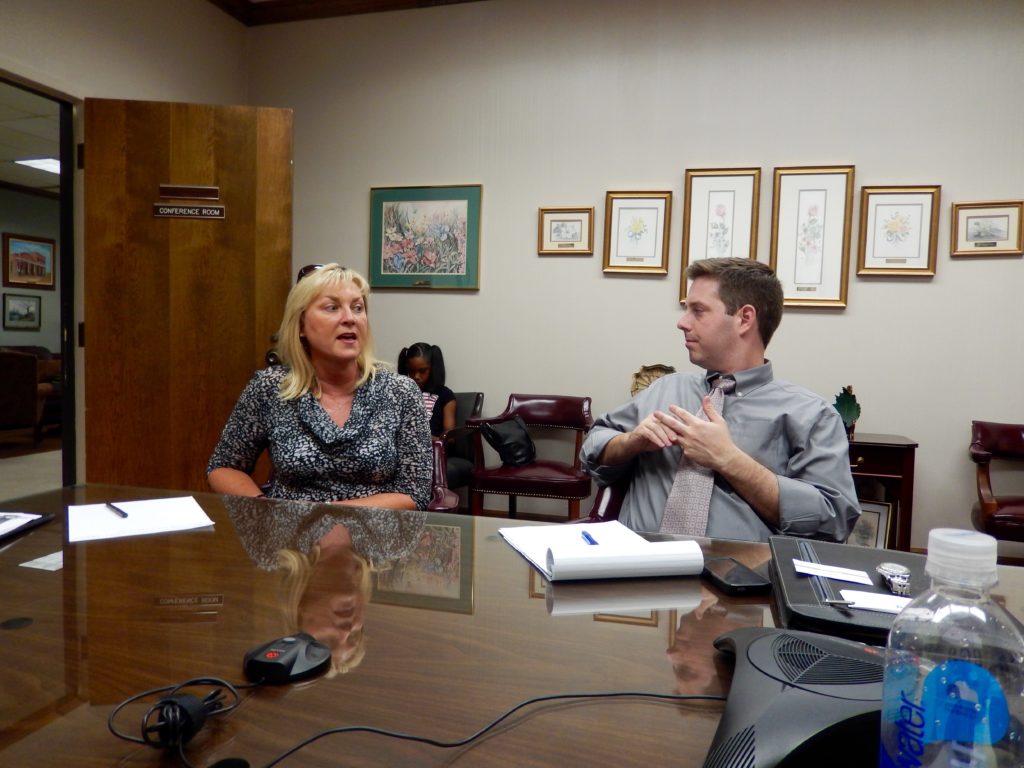Throughout 2017, Foundation president Michael Tipton is providing ongoing insight into the structure and framework behind our new grant programs. This is the first of three parts, focusing on our commitment to fostering innovation through the New Horizons grant program.
At the end of 2015, the Blue Cross and Blue Shield of Louisiana Foundation wrapped up its three-year Challenge for a Healthier Louisiana program, a massive collective impact project that sought to move the needle on reducing childhood obesity.
Along with our twelve partners across the state, we achieved incredible outcomes, building hundreds of community gardens, distributing a half-million pounds of produce, programming thousands of exercise and nutrition classes. We are deeply proud of the work our partners did, our massive investment in heath infrastructure and in building sustainable coalitions who are still working to change community health outcomes at a grassroots level.
Frankly, however, the results were mixed. On one hand, people who participated in Challenge Grant activities were 2.5x more likely to adopt healthy living activities. On the other hand, while we never expected to solve Louisiana’s obesity epidemic in three years, the best we can say is that we slowed weight gain vs. actually reversing trends in obesity.
Some people might call this a failure. Others might only point to the positives and places where this grant achieved something others had not before. For us, the reality is we made great strides and also fell short in many places. And of this work and of our partners – whether we call it success, failure or something in-between – we couldn’t be prouder.
Why? Because by running hard at and taking risks associated with meeting this huge goal, we learned so much about what our state needs next to tackle its biggest health challenges – things we would have never learned if we hadn’t tried. In fact, one of the most important lessons we learned is that that we need more nonprofits to adopt this attitude of audacious experimentation.
I’m writing today to convince you to do the same – to dream big, to think hard, to experiment, to run hard at goals, fail, evaluate, learn and keep going. In fact, the Blue Cross and Blue Shield of Louisiana Foundation is offering you money to do it.
Non-Profit Starvation is Killing Risk
When we closed down the Challenge grants, I went out on the road and met with dozens of nonprofit partners about what Louisiana needs to move forward. I challenged many to tell me what we needed to do to improve Louisiana’s health, and one of the things I heard over and over was that there are few dollars available for innovation, when many experiments fall short of the outcomes set in planning and financing phases. This causes organizations to avoid risk and to keep doing what they’ve always done – even if they know it caps their potential impact on causes that they care about.
A few years ago, Stanford Social Innovation Review published a remarkable report on “The Nonprofit Starvation Cycle,” describing the all-too-familiar trope of nonprofits doing incredible, visible (and often grant-supported) work, but dying on the vine from a malnourished core infrastructure.
The premise that Stanford puts forward is this: the starvation cycle starts with funders’ unrealistic expectations about how much running a nonprofit costs, and results in nonprofits misrepresenting their costs while skimping on vital systems—acts that feed funders’ skewed beliefs. As the authors write: “A vicious cycle is leaving nonprofits so hungry for decent infrastructure that they can barely function as organizations – let alone serve their beneficiaries.”
In this light, how can a borderline-moribund nonprofit subsisting on crumbs possibly afford to make a mistake – much less a purposeful mistake – for the sake of progress? Doing so might mean putting yourself out of a job – killing established, outcome-producing, bread-and-butter programs in the process.
Funding Innovation
As we evaluated the Blue Cross Foundation’s unique space as a major funder in Louisiana’s health ecosystem, it became clear that a grant stream for risk and innovation was a wide path of opportunity.
To that end, we’ve launched our New Horizons grant fund, which authorizes small grants of up to $10,000 for new ideas designed to solve an important problem. We are making a purposeful investment in trial runs and social startups – essentially, we are funding hypotheses that grantees believe will generate vital data on a potential path forward.
New Horizons projects take less than one year to complete, and the barrier to entry is low – we require a Letter of Intent and, if we are excited by the project, we ask for short application and a meeting with the applicant’s leadership. The most influential factor in being awarded a New Horizons grant is not only the clarity of the idea, but the leadership’s willingness to embrace the project as an experiment. In cases of both success and failure, we expect our grantees to enthusiastically deconstruct the project, salvage the best elements and move forward.
To date, we’ve funded a handful of these – which are already showing incredible promise. We may go on to fund some of these ventures through our Special Projects or Collective Impact grant funds (at larger amounts). But our commitment is in providing a revenue stream that allows Louisiana’s best and brightest to try their hand at real results without fear of being cut out of future funding cycles.
The Challenge Grant projects that succeeded the most were built on new ideas. It was our partners who inspired us to take the program and move forward with a spirit of innovation — taking the best elements and the most exciting work and moved forward with renewed purpose. After all, as Seth Godin says, innovation is entirely made up of “mistakes, experiments, [and] mis-steps… Until it works.”
Michael Tipton, BCBSLA Foundation President
February 8, 2017
